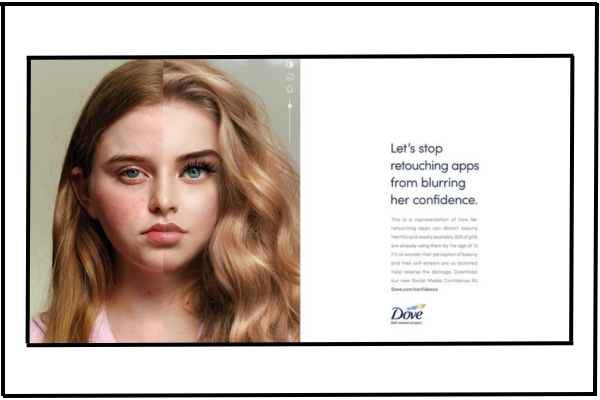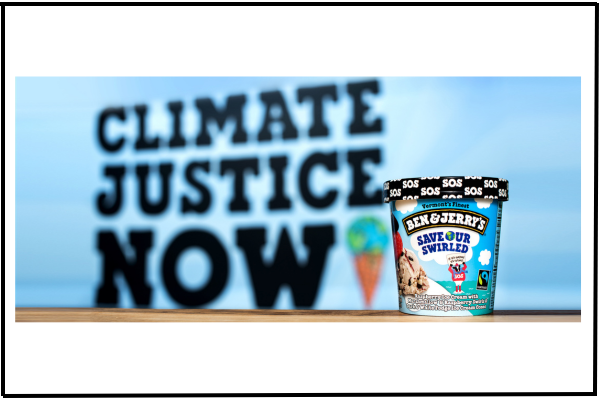Harnessing the Power of Taboo Topics in Marketing: Build Authentic Connections While Staying True to Your Brand
In a world where most copy skirts around difficult subjects, there’s real power in addressing the uncomfortable truths. Challenging the status quo with taboo topics isn’t just bold—it builds authentic connections with your audience. When you dare to explore what others shy away from, you show your readers that you understand their unspoken concerns. This kind of honesty cuts through the noise creating a deeper impact than safe, polished copy ever could.
Addressing taboo topics in copywriting doesn’t mean abandoning a brand’s message or alienating its audience. Instead, it’s about finding ways to thoughtfully integrate difficult truths into your storytelling. Start by understanding your audience’s unspoken concerns or fears—those things they’re thinking but don’t feel comfortable saying. Use the brand’s voice to address these concerns in a way that aligns with its values. This shows empathy and authenticity while still promoting the product. The key is balancing tough subjects with sensitivity, ensuring the message stays true to the brand.
5 Industries Tackling Taboo Topics in Marketing: How Thoughtful Messaging Engages Audiences
Beauty Industry:
- Taboo Topic: Unrealistic beauty standards and the impact of social media on self-esteem.
- Example: A skincare or makeup brand could address the pressure to look “perfect” and promote self-acceptance over unattainable beauty ideals.
Financial Services:
- Taboo Topic: Financial anxiety, debt, and the struggle to save.
- Example: A banking or financial service could address the stress of living paycheck to paycheck, offering empathetic solutions for realistic money management.
Healthcare Industry:
- Taboo Topic: Mental health stigma, burnout, and the emotional toll of caregiving.
- Example: A health insurance or wellness company could normalize mental health discussions and support those facing emotional exhaustion and caregiver burnout.
Food and Beverage Industry:
- Taboo Topic: Food insecurity and the hidden costs of sustainable eating.
- Example: A meal delivery or food brand could address food deserts, financial barriers to healthy eating, and the need for accessible, sustainable options.
Fashion Industry:
- Taboo Topic: The environmental impact of fast fashion and overconsumption.
- Example: A clothing brand could address fashion waste, urging consumers to choose quality over quantity and make ethical choices.
4 Brands Leading the Way: How Addressing Difficult Topics Creates Deeper Audience Engagement
Let’s look at some real-world examples. These four brands consistently take risks by addressing difficult topics, creating lasting engagement with their audiences.
Dove – Real Beauty Campaign:
Dove is known for its long-running Real Beauty campaign, which challenges unrealistic beauty standards and promotes body positivity. They address self-esteem and societal beauty pressures, resonating with consumers by focusing on authentic beauty.

Patagonia – Environmental Activism:
Patagonia integrates its environmental activism into its marketing, discussing the negative impact of consumerism and fast fashion. They launched campaigns like “Don’t Buy This Jacket,” urging customers to repair and reuse clothing, directly addressing fashion’s unsustainability.

Always – #LikeAGirl Campaign:
Always’ #LikeAGirl campaign tackled the negative perceptions of doing things “like a girl.” By showing how language shapes young women’s self-esteem, they challenged gender stereotypes and empowered their audience with positive messaging.

Ben & Jerry’s – Social Justice Messaging:
Ben & Jerry’s regularly engages in conversations around social justice, tackling issues like racial inequality, climate change, and LGBTQ+ rights. Their bold stance sets them apart from other ice cream brands, showing their commitment to activism and resonating with socially conscious consumers.

How Small Businesses Can Address Taboo Topics in Their Marketing
It’s easy to look at big-name brands like Dove, Patagonia, or Ben & Jerry’s and feel like you need a massive budget to successfully challenge the status quo and address sensitive topics. But the truth is, small businesses, local brands, and up-and-coming entrepreneurs can incorporate this bold strategy into their marketing as well—without millions of dollars at their disposal. Here’s how they can do it:
1. Start with Your Core Values and Mission
Before addressing any controversial or taboo topic, it’s crucial for small businesses to reflect on their core values and mission. What does your brand stand for? What matters to your audience? Whether you’re a local coffee shop, boutique, or service provider, tapping into the deeper purpose behind your brand will help you choose topics that align with your vision.
Example: A small, eco-friendly beauty brand might decide to address the taboo of greenwashing in the industry and educate their customers on what real sustainability looks like. By leaning into their authentic mission, they can create a stronger, more trustworthy bond with their customers.
2. Know Your Audience and Their Pain Points
Small businesses have a distinct advantage when it comes to understanding their audience—they’re often closer to their customers than large corporations. Take the time to really know what your customers care about and what unspoken fears or concerns they have.
Example: A local financial advisor could address the anxiety surrounding credit card debt or student loans. By offering empathetic advice and transparent solutions, they can build trust and show customers they truly understand their struggles.
3. Be Honest, Authentic, and Transparent
One of the most important elements of tackling taboo topics is being genuine in your approach. Small businesses should focus on building trust by being open and honest about these difficult subjects, and avoid approaching them from a place of sensationalism.
Example: A small, family-owned restaurant could open up about the challenges of sourcing affordable, sustainable food in their community. They might use their platform to educate customers on the hidden costs of food production while promoting their local sourcing practices, which align with their values.
4. Use Storytelling to Humanize the Issue
Storytelling is one of the most powerful tools small businesses can use to tackle sensitive topics. Sharing real stories—whether from the business owners themselves or their customers—can humanize the issue and help others relate to it on a personal level.
Example: A small yoga studio might feature stories from clients who’ve experienced the mental health benefits of yoga, normalizing conversations around stress, anxiety, or trauma. By putting a human face to the topic, the studio can foster a supportive community while addressing important issues.
5. Leverage Low-Cost Platforms and Community Engagement
While large brands have huge budgets for ads and PR, small businesses can leverage low-cost platforms like social media, email marketing, or community events to start important conversations. Engaging directly with your local community or niche audience can be just as impactful as a big-budget campaign.
Example: A local thrift store could start a conversation on social media about overconsumption and the benefits of second-hand shopping, highlighting personal stories from customers who’ve embraced sustainable living. Community-driven content like this can resonate deeply without needing a huge budget.
6. Be Ready to Listen and Adapt
Tackling taboo topics can sometimes lead to pushback, but small businesses have the advantage of being more agile than large corporations. If you’re listening to your audience and adapting based on feedback, you can ensure that your message resonates without alienating customers.
Example: A small wellness company addressing mental health might invite customers to share their own experiences or host discussions online, creating a space for genuine dialogue and letting their audience shape future messaging.
Embrace Authenticity: Craft Bold, Impactful Messaging That Resonates
As a copywriter, I believe in the power of breaking the silence—whether it’s by tackling taboo topics or creating messaging that resonates deeply with your audience. Addressing uncomfortable truths in an authentic, transparent way can set your brand apart and foster real connections with your customers.
If you’re ready to move beyond surface-level messaging and dig into the core values and pain points that matter most to your audience, I can help. By understanding your brand’s mission and crafting thoughtful, bold content, I ensure your message doesn’t just stand out—it leaves a lasting impact.
Want to explore how your brand can harness the power of authentic, fearless communication? Check out my portfolio, and let’s start a conversation.


Comments are closed